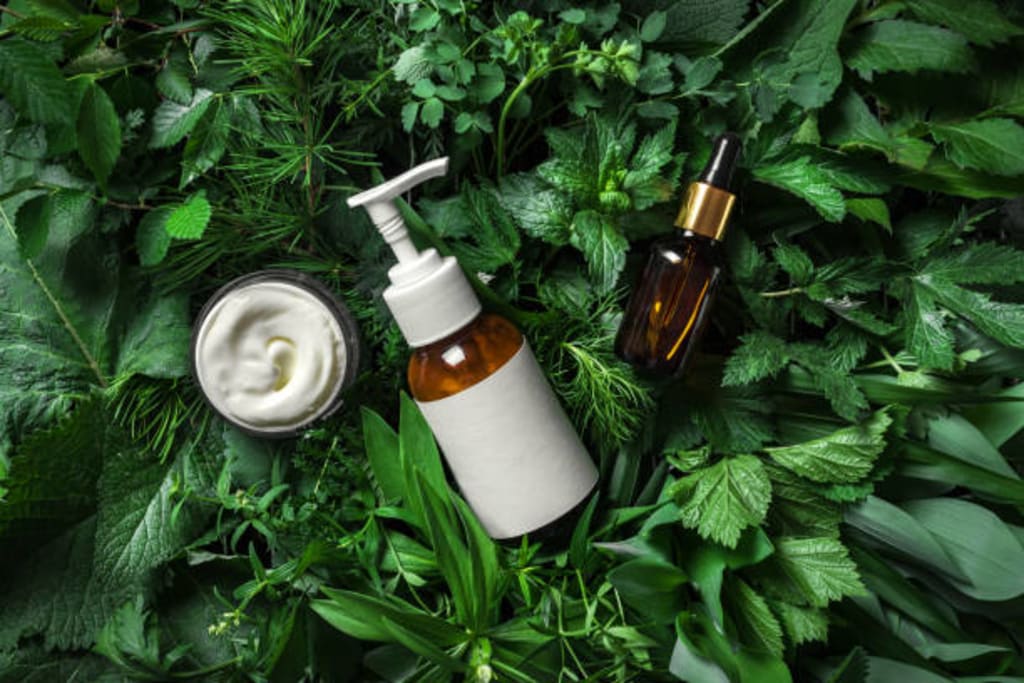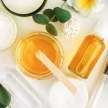
First of all let's talk about setting a base for any kind of body lotions or body butters . You can also called it emulsion. Emulsion has two phases : (1) Oil phase (2) water phase. In oil phase you can take any kind of vegetable oil ,butters and waxes. For a skin care product to be organic, it must consist of organically farmed and processed plant-derived ingredients. Some examples of these include:
1) plant extracts
2) plant oils or butters
3) essential oils
4) resins Organic skin care is not necessarily any more or less effective than nonorganic skin care. Natural and organic cosmetics are greatly influencing and changing the cosmetics panorama. While “beauty” is still the main term that comes to mind when we think about cosmetic products, an increasing number of consumers expect to find “sustainable”, “environmentally friendly” and “ethical” qualities in the cosmetics they purchase. Natural and organic cosmetics represent these in an authentic way as they are part of their core values and commitment not only to human wellbeing, but also to the protection of the environment and biodiversity. Natural and organic beauty brands are often small and medium enterprises (SMEs) whose production is mostly carried out at local, regional or national level. A more local production can contribute to more sustainable and cheaper products. Natural ingredients are increasingly used in conventional cosmetics and personal care products. Companies are replacing synthetic chemicals with natural ingredients, partly because of consumer demand and partly because of a move towards sustainable raw materials.
Organic and natural cosmetics show qualitative similarity into formulations, however they are quantitative different. They may not contain synthetic or semi-synthetic raw materials in the formulations, with some exceptions. They may contain raw material derived from natural products with allowed processes and they need to contain raw materials with organic origin - of which varies in the amount present into natural or organic products.
• Organics: when at least 95% of the formulation components, less water, are organic raw material. These raw materials can be obtained through certificated crops and extraction, it's fundamental that they are biodegradable and that they preserve the most natural chemical characteristics. An organic raw material is always natural. The last remaining 5% of the formulation may be composed of water, natural raw materials, coming from agriculture or non-certified allowed extractive for organic formulations.
• Natural: a cosmetic can be classified as natural and be certified if the formulation is composed of natural raw materials certified or not. Natural raw materials are vegetable or mineral products, most often produced in a conventional condition and not always adhering to the criteria established for organic production. A natural raw material is not necessarily organic.
Become A Organic Cosmetics Chemist
Whether for your own brand or career I will teach you everything you need to know to become a properly qualified cosmetic chemist. Learning how to make natural skincare products is one of the most rewarding and empowering skills you can master. Being able to whip up your own fluffy body butter, or blend your own botanical toner, or mix together your own organic serum will see you start to turn your back on store-bought formulations. In fact, you may never again buy a cleanser, once you know how much fun and easy it is to make your own natural skincare products from scratch. One of the most exciting parts of learning how to make natural skincare products is getting to work with the vast array of botanical ingredients available to skincare formulators. Every formulator we’ve met gets excited by the opportunity to work with herbs, leaves, stalks, roots, petals, buds, barks, seeds and flowers. However, not every botanical ingredient should be used on the skin and some should be used in low percentages, so you need to start researching to find out which botanical ingredients work best when you’re choosing the right ones for your formulation.
About the Creator
Lab Care
Let's talk about cosmetics, Any of several preparations (excluding soap) applied to the human body for beautifying, preserving, or altering the appearance or for cleansing, conditioning,or protecting the skin, hair, nails, lips, eyes.
Enjoyed the story? Support the Creator.
Subscribe for free to receive all their stories in your feed. You could also pledge your support or give them a one-off tip, letting them know you appreciate their work.






Comments
There are no comments for this story
Be the first to respond and start the conversation.